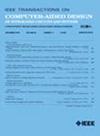iFKVS: Lightweight Key-Value Store for Flash-Based Intermittently Computing Devices
IF 2.7
3区 计算机科学
Q2 COMPUTER SCIENCE, HARDWARE & ARCHITECTURE
IEEE Transactions on Computer-Aided Design of Integrated Circuits and Systems
Pub Date : 2024-11-06
DOI:10.1109/TCAD.2024.3443698
引用次数: 0
Abstract
Energy harvesting enables long-running sensing applications on tiny Internet of Things (IoT) devices without a battery installed. To overcome the intermittency of ambient energy sources, system software creates intermittent computation using checkpoints. While the scope of intermittent computation is quickly expanding, there is a strong demand for data storage and local data processing in such IoT devices. When considering data storage options, flash memory is more compelling than other types of nonvolatile memory due to its affordability and availability. We introduce iFKVS, a flash-based key-value store for multisensor IoT devices. In this study, we aim at supporting efficient key-value operations while guaranteeing the correctness of program execution across power interruptions. For indexing of multidimensional sensor data, we propose a quadtree-based structure for the minimization of extra writes from splitting and rebalancing; for checkpointing in flash storage, we propose a rollback-based algorithm that exploits the capabilities of byte-level writing and one-way bit flipping of flash memory. Experimental results based on a real energy-driven testbed demonstrate that with the same index structure design, our rollback-based approach obtains a significant reduction of 45% and 84% in the total execution time compared with checkpointing using write-ahead logging (WAL) and copying on write (COW), respectively.iFKVS:基于闪存的间歇计算设备的轻量级键值存储器
通过能量收集,微型物联网(IoT)设备可以在不安装电池的情况下长时间运行传感应用。为了克服环境能源的间歇性,系统软件使用检查点创建间歇计算。虽然间歇计算的范围正在迅速扩大,但此类物联网设备对数据存储和本地数据处理的需求也非常强烈。在考虑数据存储选项时,闪存因其经济实惠和可用性而比其他类型的非易失性存储器更具吸引力。我们为多传感器物联网设备引入了基于闪存的键值存储 iFKVS。在这项研究中,我们旨在支持高效的键值操作,同时保证在电源中断时程序执行的正确性。对于多维传感器数据的索引,我们提出了一种基于四叉树的结构,以尽量减少拆分和重新平衡带来的额外写入;对于闪存中的检查点,我们提出了一种基于回滚的算法,该算法利用了闪存的字节级写入和单向位翻转功能。基于真实能源驱动测试平台的实验结果表明,在相同的索引结构设计下,我们基于回滚的方法与使用先写日志(WAL)和写入复制(COW)的检查点方法相比,总执行时间分别显著减少了 45% 和 84%。
本文章由计算机程序翻译,如有差异,请以英文原文为准。
求助全文
约1分钟内获得全文
求助全文
来源期刊
CiteScore
5.60
自引率
13.80%
发文量
500
审稿时长
7 months
期刊介绍:
The purpose of this Transactions is to publish papers of interest to individuals in the area of computer-aided design of integrated circuits and systems composed of analog, digital, mixed-signal, optical, or microwave components. The aids include methods, models, algorithms, and man-machine interfaces for system-level, physical and logical design including: planning, synthesis, partitioning, modeling, simulation, layout, verification, testing, hardware-software co-design and documentation of integrated circuit and system designs of all complexities. Design tools and techniques for evaluating and designing integrated circuits and systems for metrics such as performance, power, reliability, testability, and security are a focus.

 求助内容:
求助内容: 应助结果提醒方式:
应助结果提醒方式:


